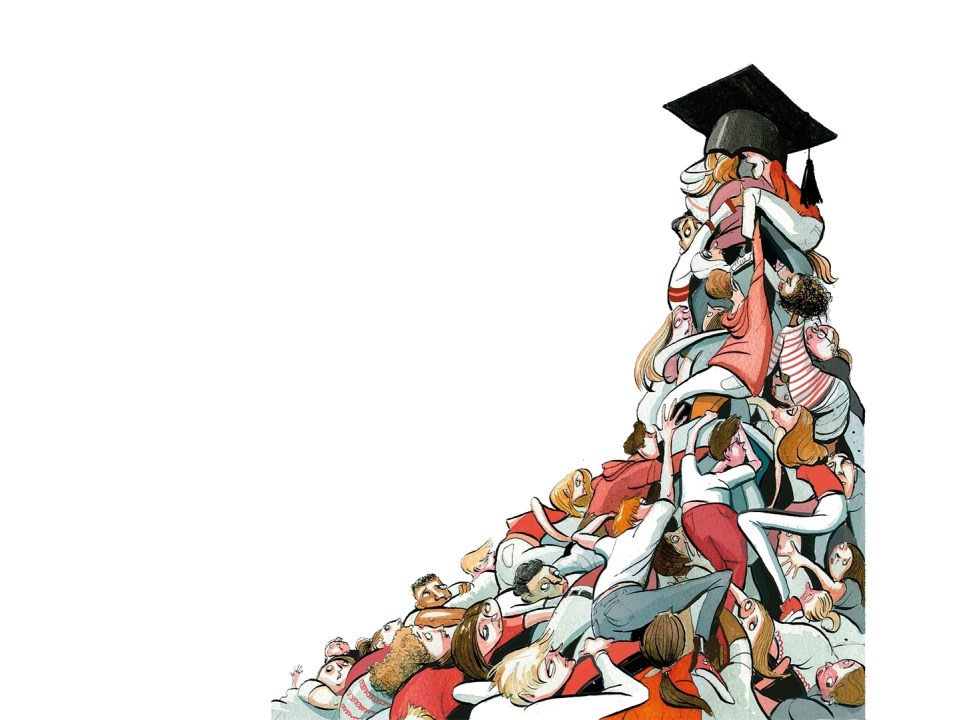Social class is dead. Education is the political dividing line that matters. This has been apparent since (at least) the 2016 EU referendum, although it has not been recognised by enough people who do and write about politics. The results of this week’s elections should drive the point home.
According to early analysis of polling by elections demigod Sir John Curtice, there are some parts of England where the Labour party actually made some modest gains in yesterday’s elections. In places – mostly urban – where a high proportion of the population has a university degree, Labour got a small positive swing. Meanwhile, Sir John reckons, council areas with a higher proportion of people with no qualifications saw a swing of around ten points towards the Conservatives.
If that analysis is borne out in the final results – and I am sure it will be – then this election will be another step towards a future where the Conservatives are the party of non-graduates and Labour champions graduates. In other words, a political system that has more and more in common with the United States, where Republicans increasingly win votes from non-college voters, and Democrats from graduates. To be clear, I’m not at all sure this is a good thing. Education as a dividing line has any number of adverse consequences for a society. My point here it not to welcome that trend, just to observe it – and hope that others do to. It needs more attention.
Even discussing this issue can be tricky. There are sadly too many people who confuse ‘education’ with ‘intelligence’.
Hartlepool looks like a good illustration of the point. As my SMF colleagues have pointed out, Hartlepool is the apprenticeship capital of England: more school-leavers there go on to higher technical qualifications than anywhere else. Meanwhile, less than a third go to university – and some of them get their degree via the town’s FE college.
I’ve been banging on about education as predictor of voting behaviour for a while, largely on the basis of smart academics such as Sir John and Professor Rob Ford at Manchester university. A lot of people get confused about education and voting, because of age. When you tell them that someone’s level of education is a good predictor of their vote, they tend to say ‘ah, that’s because of age: younger people are more likely to have degrees than older people, and it’s age that really shapes voting choices.’
But as Rob Ford has tirelessly shown the age divide is actually driven by education. His analysis of voting patterns shows, for instance, that younger voters with low educational qualifications were as likely to vote Leave as older voters with low education levels. In effect, older people aren’t more likely to vote for Brexit and the Conservatives because they’re old, but because they’re more likely to have lower levels of education.
Even discussing this issue can be tricky. There are sadly too many people who confuse ‘education’ with ‘intelligence’. This is a particular vice of left-leaning people with degrees who struggle to understand why other people might do things such as voting Leave or backing the Conservatives. The fact that such people are less likely to have a degree sometimes fuels the silly, harmful notion that they can only vote the way they do because they’ve been duped or tricked by devious politicians exploiting their stupidity.
But politicians – and especially politicians on the Left – need to pay more attention to education and they way it shapes a person’s economic experience and social-political outlook. They also need to acknowledge the simple fact that a country where national conversation and policy is dominated by graduates has neither respected nor served non-graduates as well it should.
The Conservatives are, evidently, currently benefiting from the feelings that neglect engenders, but they’d be wise not to take that support for granted. A party that’s increasingly reliant on non-graduate voters – of all ages – really should be doing more to support the bits of the education and training system that those voters do use. That means more love and more money for Further Education and apprenticeships please, Prime Minister. One way for the Tories to help keep Hartlepool — and places like it — blue would be to reverse a decade of cuts to the funding of places such as Hartlepool college.
Labour, meanwhile, faces a horrible strategic choice: go with the flow and evolve into that urban-graduate party, presumably by merging with – or being subsumed by? – the Lib Dems and Greens; or try to paddle against the tide and find a way to win back non-grads?
Not many politicians have a broad enough appeal to win over divergent groups of voters: Tony Blair was the last real ‘Big Tent’ politician, but Boris Johnson is arguably pitching a tent of his own these days. And what Blair once said about his priorities is now true about politics in general. It’s about education, education, education.








Comments